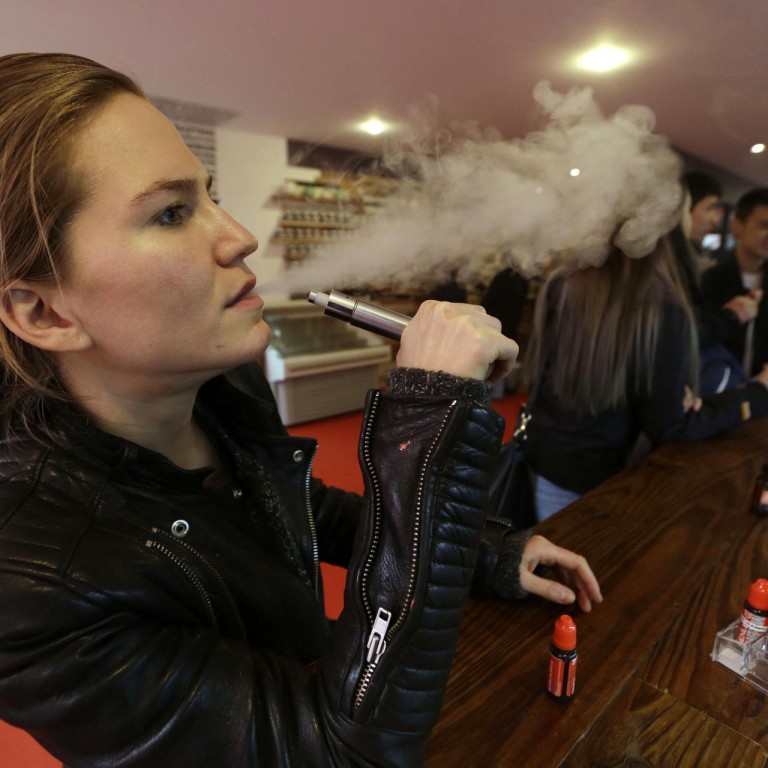
US plans controls on e-cigarette boom
US$2b-a-year business faces restrictions on sales to minors and ban on unverified claims, but proposal falls short for tobacco-control advocates
The US Food and Drug Administration (FDA) will for the first time regulate the booming market of electronic cigarettes, as well as cigars, pipe tobacco and hookahs, under new proposal.
The move would begin to restrict the US e-cigarette industry, which is work almost US$2 billion a year and which has long operated outside the reach of regulators.
If adopted, the government's plan would force manufacturers to restrict sales to minors, stop handing out free samples, place health warning labels on products and disclose the ingredients. E-cigarette makers also would be banned from making health-related claims without scientific evidence.
The FDA's proposal stops short of restrictions sought by many tobacco-control advocates. Regulators are not seeking to halt online sales of e-cigarettes, curb television advertising or ban the use of flavourings such as watermelon, grape soda and pina colada - all tactics that critics say are aimed at attracting young smokers and which have been banned for traditional cigarettes.
Those restrictions might come eventually, FDA officials said, but not before more rigorous research to establish a scientific basis for tougher rules.
"Right now, for something like e-cigarettes, there are far more questions than answers," said Mitch Zeller, director of the FDA's tobacco products division.
Yesterday's action was about expanding the FDA's authority on products that had been "rapidly evolving with no regulation whatsoever" in order to create a foundation for broader regulation in the future, he said.
"It creates the framework," Zeller said. "We're calling this the first step. For the first time, there will be a science-based, independent regulatory agency playing a vital gate-keeping function."
Zeller and FDA commissioner Margaret Hamburg discussed the proposal on Wednesday under a deal that no details would be published until yesterday.
"In the absence of any meaningful regulation, the e-cigarette manufacturers have acted as if it's the wild, wild west, with no rules and no restraints," said Matthew Myers, president of the Campaign for Tobacco-Free Kids, who had not seen the particulars of the FDA proposal.
"Their advertising is exactly the same type of advertising that made cigarettes so appealing to young people decades ago."
The public will have 75 days to comment on the proposal. After the FDA finalises its regulations, companies will have to begin complying almost immediately with age and identification restrictions, but they will have two years to submit applications to approve their products.
Greg Conley, a board member of the American Vaping Association, said the e-cigarette industry supported sensible regulations, such as restricting sales to minors, child-resistant packaging and standardised labelling. But Conley, who had not seen the details of the proposal, said he and others feared that the FDA would drive out of business small manufacturers, as well as many bricks-and-mortar vape shops, if it regulated too overzealously in coming years.
"They could completely wipe out the growth in e-cigarettes . . . They could destroy a big part of the industry and send a lot of it underground," he said. "I'm cautiously pessimistic."
